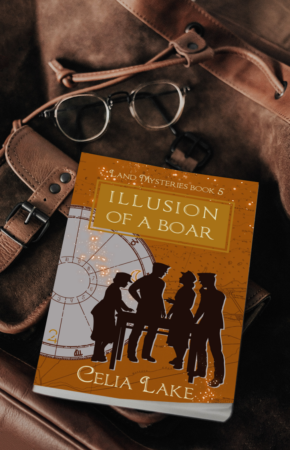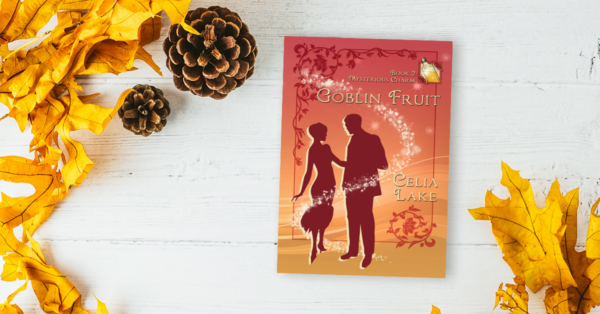Time for something a little fun! Let’s take a look at four songs that make me think of specific characters or character moments. Three are for books and characters that are out in the world. One is for someone you’ve seen later in her life (if you’ve read the Mysterious Fields).
We’re going to take them in reverse chronological order, because that’s the more amusing one. I’ll be linking to YouTube for the songs, and Genius for the lyrics.

Writing and music
I should start here by noting two things about music and my writing.
First: When I’m actually writing, I have a whole series of playlists. They do not have words in any language I’m going to try and parse. Mostly, that means instrumental. But one of the playlists for Old As The Hills includes a bunch of Basque music. A few of them have songs in Scots, Welsh, or Irish Gaelic. (Latin depends on the Latin and ennunciation for me. French, Italian, and German are usually not an option.)
The exception to this rule is Best Foot Forward, which managed to fix a 20 year broken relationship with common practice period music. (More about that here in Best Ear Forward)
(Weirdly, I can compose music while listening to different music, including working with lyrics. But when I’m writing words, I need no words or only in a language that I won’t try and interweave with what I’m writing.)
Second: I am unlikely to have picked up music written since about 1920 unless it’s certain subgenres of British folk, Broadway, or movie scores. Or unless Kiya (friend, editor, other half my brain) has introduced me to it. Other people too (there’s one of those in here). But honestly, mostly Kiya. Or sometimes one of my Monday night role-playing groups, which includes Kiya.
1944 : Primo Victoria : Van Canto
Kiya waved this one at me when I was fairly early in writing Illusion of A Boar. I actually have two versions on my “Particularly resonant songs” playlist, this cover by Van Canto and the original by Sabaton. Both are metal, Van Canto is an a capella metal band.
Van Canto : Primo Victoria on YouTube and lyrics for Primo Victoria on Genius.
Why this song? Well, it’s about the Normandy invasion. Of the four point of view characters in Illusion of A Boar, Orion is the only one who has seen direct combat. He’s also the one who has the most complex feelings about not being part of the D-Day invasion.
However, he absolutely has all the feelings about running headfirst into the challenge, knowing that death might be the result (for him, for people he cares about). And he is also clear – though his fighting was mostly in the Greek islands – of how urgent and necessary fighting fascism and the Nazis are in that moment.
From the chorus:
Aiming for heaven though serving in hell
Primo Victoria – Van Canto
Victory is ours their forces will fall
Through the gates of hell
As we make our way to heaven
Through the Nazi lines
Primo victoria
1940 : Right Hand Man : Hamilton
Back in 1940, we have a song that kept catching my attention when I was writing Old As The Hills and Upon A Summer’s Day (a book whose structure is, incidently, based on the dance of that name). There’s a lot in Hamilton that is resonant about the impact of specific choices, good and bad.
Right Hand Man (Hamilton) on YouTube and the lyrics of Right Hand Man on Genius
There’s one line in this that gets me every time. I mean, besides the fact that if you put Alexander Hamilton and Gabe in the same room, the room would shortly probably not still be in one piece. Because they’d both be gesturing energetically and sproinging off after their own particular points of interest. Heavens help anything in the way.
One of the central questions of Old As The Hills (which gets Gabe into considering the question) is about sacrifice. Sacrificing your life for something is a thing you can only do once per lifetime, so how do you make it count? How do you know if it’s what’s needed now?
The rest of the song has a lot in it about the chaos and many difficult choices of resistance, of war, of groping through chaotic information and lack of information to make the best decisions you can. But then there’s this:
[WASHINGTON]
It’s alright, you want to fight, you’ve got a hunger
I was just like you when I was younger
Head full of fantasies of dyin’ like a martyr?
[HAMILTON]
Yes[WASHINGTON]
Right Hand Man – Hamilton
Dying is easy, young man. Living is harder
It’s that last line that kept me coming back. This is a complicated truth, even for Gabe, who is 40 at this point, and no longer quite as young or impetuous as he was earlier. All of this means he’s got to confront not just the question of what he’s willing to die for – but what living for something means.
1923 : Growing Sideways – Noah Kahan
This one is thanks to a reader and friend who suggested it was very much Isembard in his darkest years, between 1917 and about 1923. (And also about him reflecting back on those years later.) By the time we see him in Eclipse, he’s at least found some internal balance, and that improves over time. And a certain amount of prodding from Thesan.
Growing Sideways by Noah Kahan on YouTube and the lyrics to Growing Sideways on Genius.
Isembard has so many little chips taken out of him, and some larger shattered holes. (Well, one in particular, about Perry.)
Here, the lines that get me are:
And I divvied up my anger into thirty separate parts
Growing Sideways – Noah Kahan
Keep the bad shit in my liver and the rest around my heart
I’m still angry at my parents for what their parents did to them
But it’s a start
As a note, there will be a sequence of Isembard in his first year of teaching at Schola – 1923-1924 – coming to Patreon later this year, which also touches on some of this.
The good news is that Isembard does, over time, figure a lot of this out. What’s worth staying alive for, how to feel alive, how to fill in those holes. He gets a surprise about some of the lingering cracks in Grown Wise, much later in his life, too.
1854 : Start Again – Grace Petrie
If you’ve read the Mysterious Fields trilogy, you’ve seen Hereswith Rowan as a secondary character. In 1889, she’s been the Head of the Council for 13 years or so, a woman in her seventies.
But the book I’m editing right now is her first romance, with Bess Marley, in 1854, Claiming the Tower. It also includes her Council challenge. (I have two more books planned in this sequence: Hereswith’s romance with her husband, Galahad, in the 1860s. And a not-a-romance novel including the Powell cousins – Metaia and Owain – once they’re both on the Council in the late 1870s.)
I’ve been thinking a lot about Hereswith’s motiviations for making a major change in her life. And then Kiya waved this song at me, and I’ve had it on repeat over and over.
Start Again by Grace Petrie on YouTube and the lyrics to Start Again on Genius
1854 is the beginning of the Crimean War. (October 1854 is the Charge of the Light Brigade, which is the part of the war that people might remember, along with Florence Nightingale.) It’s also in many ways the first modern war – including having reasonably prompt report of battles and conditions at the front. Long story short – there’s a novel here, obviously – Hereswith is infuriated by the many awful decisions being made by people in power.
There’s rage there. There’s wanting to tear down the world to make something better. There’s having to work through the existing forms of power, held by people who do not want to change anything.
It’s about picking up again – and again. It’s about seeing that there’s another Albion possible, that we can keep reaching for it.
And in the crowds of everyone
Start Again – Grace Petrie
I thought I saw the world to come
I saw another Albion

